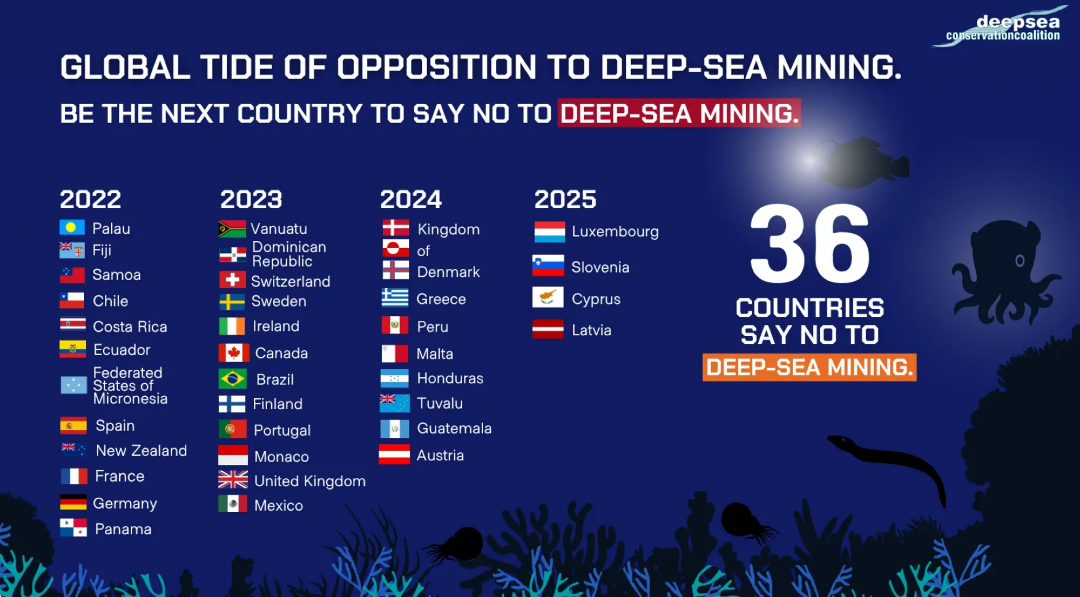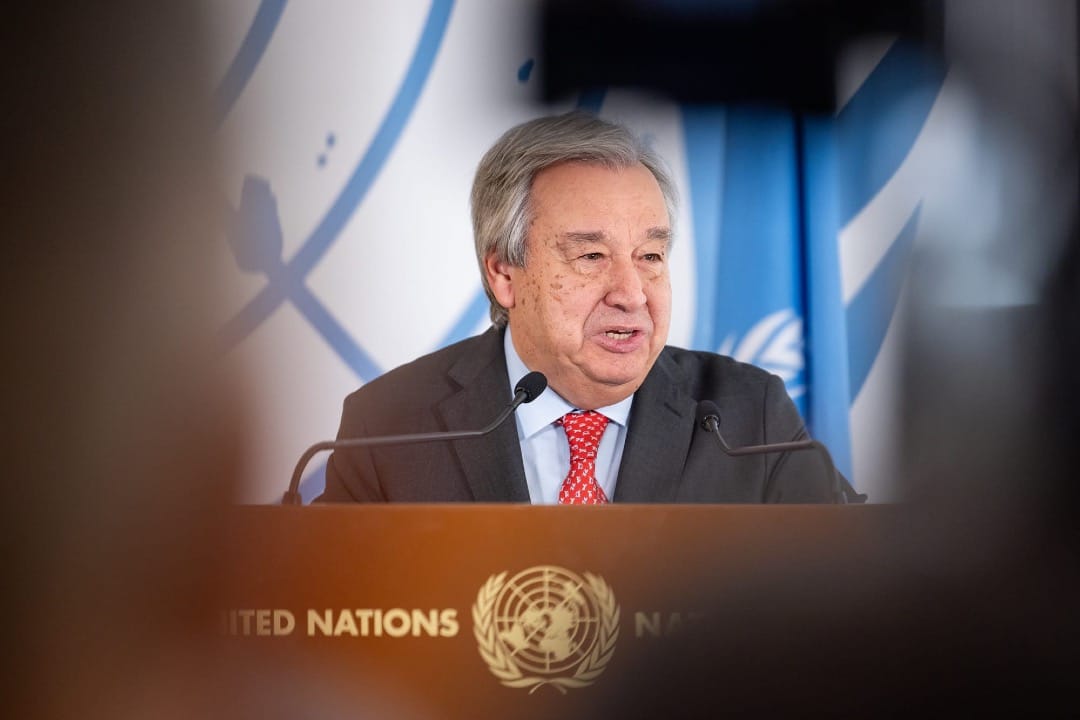UN Secretary-General resists call to back deep sea mining moratorium, as more countries join the lobby
Antonio Gutteres was asked to lend his voice to the lobby against deep sea mining but the world's chief diplomat supported multilaterism instead.

United Nations chief Antonio Gutteres has not heeded the call to support a moratorium on deep sea mining.
In his opening remarks at the start of the third UN Ocean Conference (UNOC3) now underway in Nice, France, Gutteres said the ocean was in danger but stopped short of calling for a pause on extracting minerals from the ocean floor.
His speech comes three weeks after a coalition of 130 NGOs called Deep Sea Conservation Coalition (DSCC), wrote an open letter to Gutteres urging him to back the moratorium, for which 30+ countries have already pledged support.
In the letter, DSCC had urged him "to take a clear and public stand".
But this morning, the secretary-general instead signalled support for the ongoing processes of the UN body that has been overseeing deep sea mining regulations, the International Seabed Authority (ISA):
"Nations are now navigating new waters on seabed mining. I support the ongoing work of the ISA on this important issue. The deep sea cannot become the wild west"
Rapping the US on the knuckles
Whilst not explicitly backing a moratorium, his comment about the 'wild west' is widely seen as a condemnation of the United States' decision to bypass the ISA and establish its own deep sea mining regulatory framework.
Donald Trump signed an executive order in April calling for licences to be issued to domestic miners outside of the ISA framework, and The Metals Company has already applied to mine the bed of the high seas.
The ISA swiftly condemned the unilateral move last month as a breach of international law and rejected accusations from The Metals Company that it was biased towards environmental concerns.
In defence of moratoriums
This morning, the UN chief spoke of the positive effects of previous ocean related moratoriums, but stopped short of explicitly mentioning the ongoing lobby for the one related to deep sea mining:
"We live in an age of turmoil. But the resolve I see here gives me hope. Hope that we can turn the tide, that we can move from plunder to protection; from exclusion to equity; from short term exploitation to long term stewardship. We know it's possible. When we reached a global moratorium on commercial whaling, whale population recovered. When we protect marine seas, life returns. Today we have the opportunity to restore marine abundance. What was lost in a generation can return in a generation."
French president slams deep sea mining again
However, host president Emmanuel Macron was characteristically less subtle in his remarks welcoming 120 countries to the south of France:
"I’m not against economic activity. On the contrary. But I think it’s madness to launch economic action that’s so predatory, that will disrupt the seabed, that will destroy biodiversity, that will lead to carbon being released that we know nothing of..."
"The [deep sea mining] moratorium is an international crucial need. Let us protect our ecosystems...the ocean is not for sale anymore than Greenland is for sale"
His comments were also clearly a jab at the US president who had posited the idea of the United States purchasing Greenland earlier this year, a notion the island has rejected.
At the last UN Conference in Portugal, Macron had called for a moratorium on deep sea mining and France is one of the lobby's most vocal and high profile voices.
His impassioned remarks at this morning's conference were met with scattered applause but there was no noticeable show of support from the secretary -general, who opted for a neutral diplomatic disposition.
BBNJ gets more support
Macron said the BBNJ or High Seas Treaty as it's popularly called, achieved more pledged support at UNOC3 to become international law, allowing greater protection against deep sea mining.
BBNJ was adopted in 2023 and addresses marine biological diversity in the high seas.
Its focus on protection is seen as a counterpoint to deep sea mining but is in need of 60 ratifications.

Three more countries back moratorium
This morning, three more countries joined the call for a deep sea mining moratorium, namely Slovenia, Cyprus, and Latvia.
The three European states follow in the footsteps of nearby Luxembourg, which also announced support for a deep sea mining moratorium a few weeks ago.
The four pledges bring the total number of countries supporting a deep sea mining moratorium to 36.
Costa Rica president's impassioned plea
UNOC3 is also being co-hosted by Costa Rica, which supports a moratorium on deep sea mining, a move its president Rodrigo Chaves Robles called "the minimum" required:
"We have to have this pause. Until we have sufficient science to rationally make use of the marine environment...we don't want in the future to be paying for the greed of others" .
The conference continues this week in Nice.

For editorial comments or questions: [email protected]


